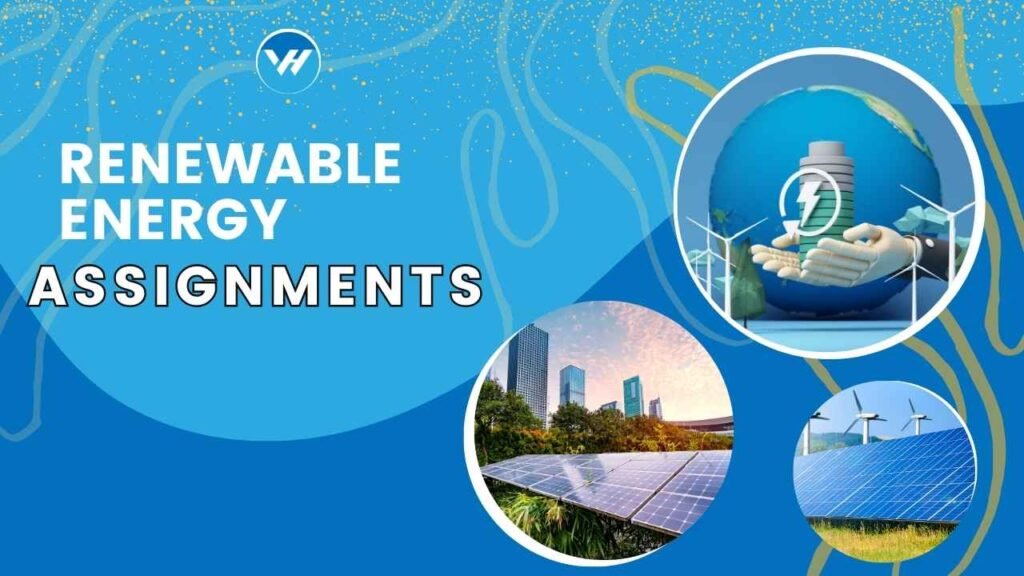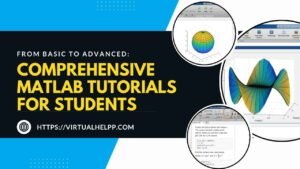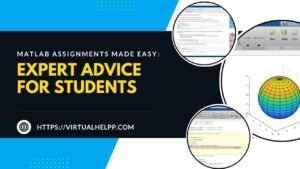Renewable energy is more than just a buzzword; it’s a crucial element in our fight against climate change and our journey towards a sustainable future. Assignments on renewable energy play a pivotal role in educating students about this essential topic. They not only enhance understanding but also prepare students for future careers in this rapidly growing field.

Table of Contents
ToggleUnderstanding Renewable Energy
Definition of Renewable Energy
Renewable energy comes from sources that are naturally replenished on a human timescale, such as sunlight, wind, rain, tides, waves, and geothermal heat. Unlike fossil fuels, which are finite, renewable energy sources are sustainable and have a lower environmental impact.
Types of Renewable Energy Sources
- Solar Power: Harnessing energy from the sun using solar panels.
- Wind Energy: Utilizing wind turbines to convert wind into electricity.
- Hydropower: Generating power by using the flow of water in rivers or dams.
- Biomass Energy: Using organic materials like plant and animal waste to produce energy.
- Geothermal Energy: Tapping into the heat from the earth’s core to generate power.
Why Study Renewable Energy?
Environmental Impact
Studying renewable energy is crucial because it helps us reduce greenhouse gas emissions and pollution, mitigating the adverse effects of climate change. Renewable energy sources are clean, which means they produce little to no harmful emissions.
Economic Benefits
Renewable energy can significantly reduce energy costs in the long run. It also creates jobs in manufacturing, installation, and maintenance, thus boosting the economy.
Career Opportunities
The renewable energy sector is booming, offering numerous career opportunities. From engineering and research to policy-making and project management, there’s a wide array of fields to explore.
Common Topics in Renewable Energy Assignments
Solar Power
Assignments on solar power might cover topics like photovoltaic cells, solar thermal energy, and the integration of solar power into the grid.
Wind Energy
Students may explore wind farm design, turbine technology, and the environmental impact of wind energy.
Hydropower
Topics can include the mechanics of hydroelectric plants, water resource management, and the ecological effects of dam construction.
Biomass Energy
Assignments might delve into biofuels, biogas, and the role of biomass in reducing waste and generating power.
Geothermal Energy
Students could study geothermal power plants, the geology of geothermal resources, and the benefits and challenges of using geothermal energy.
Key Concepts to Cover
Energy Conversion
Understanding how different forms of renewable energy are converted into usable electricity is fundamental.
Efficiency and Sustainability
Examining the efficiency of various renewable energy technologies and their sustainability is crucial for evaluating their viability.
Technological Innovations
Keeping up with the latest technological advancements in renewable energy can provide students with insights into future trends and possibilities.
Research and Resources
Reliable Sources for Research
Encourage students to use credible sources such as academic journals, government reports, and reputable websites.
Utilizing Academic Journals
Academic journals are invaluable for providing peer-reviewed, high-quality information and the latest research findings.
Importance of Staying Updated
The field of renewable energy is rapidly evolving. Staying updated with the latest developments ensures that assignments are current and relevant.
Assignment Structure and Formatting
Introduction
Start with a compelling introduction that outlines the importance of renewable energy and what the assignment will cover.
Body
Divide the body into clear sections, each addressing different aspects of the topic. Use headings and subheadings to organize the content.
Conclusion
Summarize the key points discussed and provide a concluding thought or call to action.
References
Cite all sources used in the assignment to avoid plagiarism and enhance credibility.
Tips for Writing Effective Assignments
Understanding the Assignment Brief
Make sure to thoroughly read and understand the assignment brief before starting. This helps in meeting the requirements and expectations.
Developing a Thesis Statement
Create a strong thesis statement that guides the direction of the assignment and keeps it focused.
Creating an Outline
An outline helps in organizing thoughts and ensuring a logical flow of information.
Drafting and Revising
Write the first draft without worrying too much about perfection. Once the draft is complete, revise it to improve clarity, coherence, and overall quality.
Common Challenges and Solutions
Time Management
Allocate specific times for research, writing, and revision to avoid last-minute rushes.
Understanding Complex Concepts
Break down complex concepts into simpler terms or seek help from tutors or online resources if needed.
Avoiding Plagiarism
Always give credit to the original authors by citing sources and using quotation marks for direct quotes.
Interactive and Engaging Assignments
Group Projects
Encourage collaboration through group projects, which can enhance learning and foster teamwork.
Presentations
Presentations are a great way to develop public speaking skills and share findings with peers.
Hands-on Experiments
Hands-on experiments can provide practical experience and a deeper understanding of theoretical concepts.
Assessment and Feedback
Criteria for Evaluation
Understand the criteria used for evaluation to meet or exceed expectations.
Importance of Feedback
Feedback from instructors is valuable for identifying strengths and areas for improvement.
Improving Based on Feedback
Use feedback constructively to make necessary improvements and enhance learning.
Utilizing Virtual Help for Renewable Energy Assignments
Finding Tutors
Virtual Help offers a platform where students can find tutors who specialize in renewable energy.
Getting Assignment Help
The app also provides assistance with assignments, making it easier to understand and complete complex tasks.
Benefits of Using the App
Using Virtual Help can save time, provide expert insights, and improve overall academic performance.
Conclusion
Renewable energy is a vital field of study that holds the key to a sustainable future. By engaging with assignments on this topic, students not only expand their knowledge but also contribute to the broader goal of environmental conservation. Embrace the challenges, utilize the resources available, and take advantage of platforms like Virtual Help to excel in your renewable energy assignments.
FAQs
What is Renewable Energy?
Renewable energy comes from sources that are naturally replenished, such as sunlight, wind, and water.
Why is Renewable Energy Important?
Renewable energy is crucial for reducing greenhouse gas emissions, combating climate change, and providing sustainable energy solutions.
How Can I Improve My Renewable Energy Assignment?
Improve your assignment by conducting thorough research, using credible sources, and organizing your content effectively.
What Resources Can I Use for My Assignment?
Use academic journals, government reports, reputable websites, and platforms like Virtual Help for assistance.
How Can Virtual Help Assist Me?
Virtual Help offers tutoring services, assignment help, and resources that can aid in understanding and completing renewable energy assignments.





